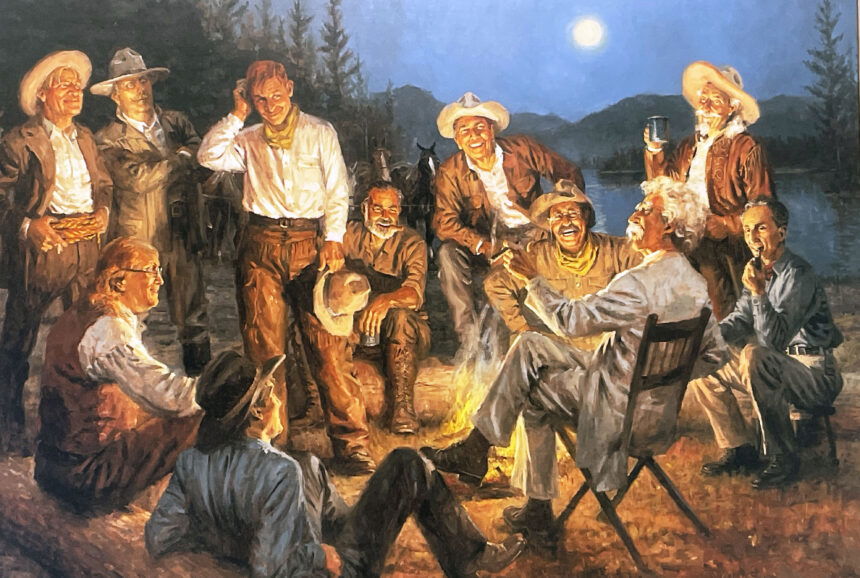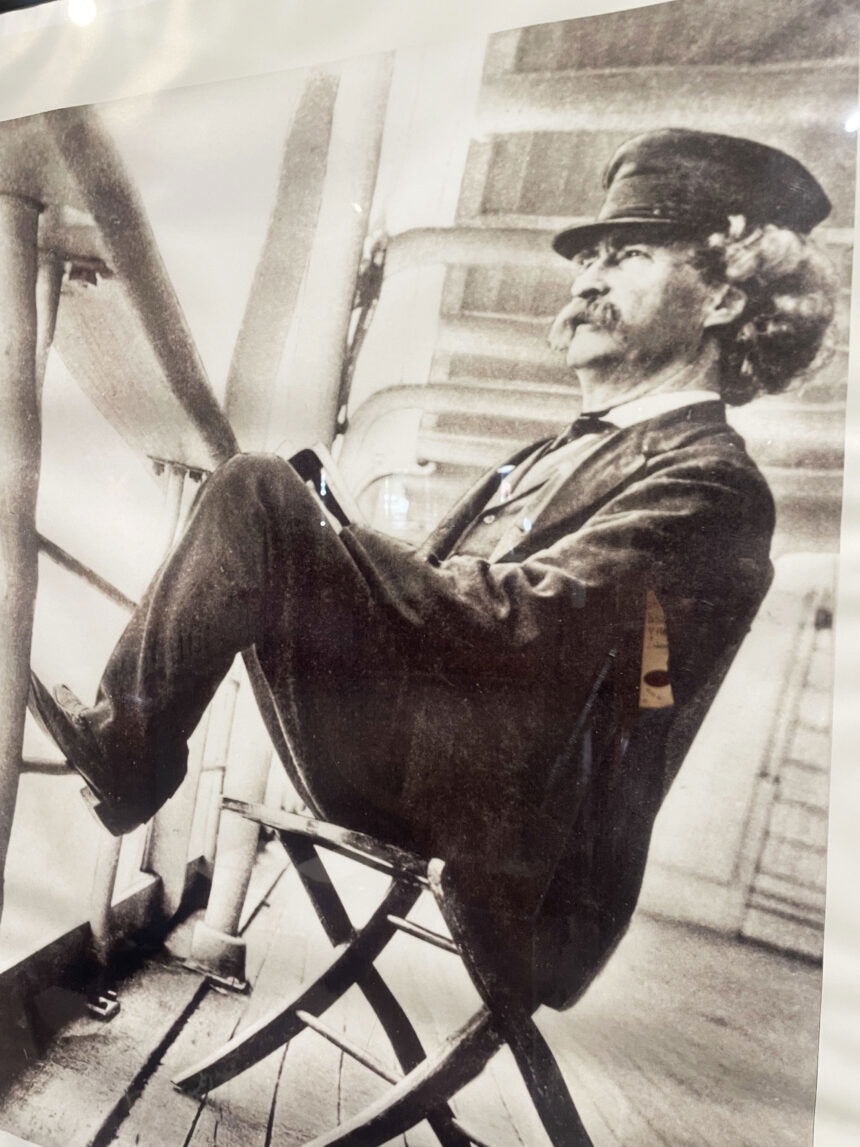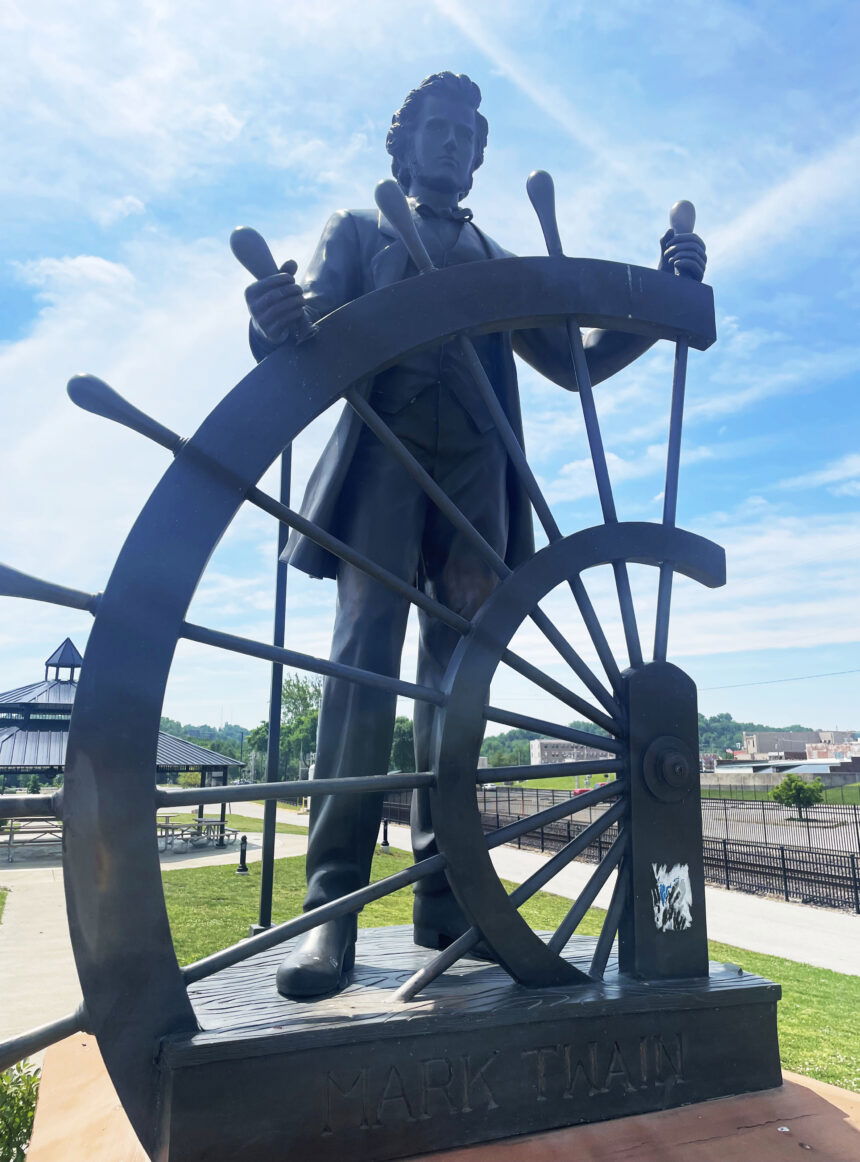Mark Twain could insult you without you realizing it!






If you love history, we are seeking sponsors and contributors to support this work. Contact Bob at robertmford@aol.com and/or donate via Venmo @bobfordshistory.
Who better to be the eastern bookend of Missouri’s ingenious Highway 36 then America's Bard, Mark Twain.
Born Samuel Clemens, he used several pen names, but his most famous was Mark Twain, choosing that name as a tribute to his love of piloting.
“Mark twain” is what a steamboat crew member yelled out to tell the Captain the depth of the river.
“Mark twain” is two fathoms, or 12 feet. I assumed you wanted to know.
Using Victorian wordsmithing, he approached everyday dilemmas, work, sex, relationships, slavery and government with unparalleled clever satire and wit.
“Suppose you were an idiot. And suppose you were a member of Congress. But I repeat myself.”
Twain grew up in Hannibal, Missouri, on the Mississippi River. That river and the escapades it provided a young boy ultimately influenced his writing and outlook on life. As a boy all he wanted to become was that pilot, a riverboat pilot. He knew it was the most honorable, exciting and challenging occupation in all the world.
Born in 1835, his exploits as a young man turned into American classics, The Adventures of Huckleberry Finn, Life on the Mississippi and The Adventures of Tom Sawyer, all had the Mississippi flowing through their story lines.
Twain successfully chased his piloting dream until like many, his plans were dashed by war, the Civil War.
In 1861, Missouri State Guard was pro-Confederate. Twain joined the Marion Rangers and wrote about their misfortunes.
“The Private History of a Failed Campaign,” detailed the Rangers half-hearted commitment to the “cause.” The short folly reads more like a Boy Scout Troop romp through the woods than a committed militia dedicated to fight … then a stranger gets killed. Reality landed hard on Twain, forcing him to reevaluatehis commitment.
“I hate war as only a soldier who has experienced it can, only one sees its brutality, its futility and its stupidity!”
War wasn’t for Twain. As with many other Marion Rangers, he quickly left the squad. Heading West, Twain found work as an unsuccessful miner, reporter and then author, gathering life experiences. Now his writings turned cynical towards war, any war. Twain, like Lincoln and so many others of the time, changed their attitude towards slavery too.
Growing up, slavery was a given for him, his father dabbled trading in humans and favorite Uncle John Quarles owned 20.
Pre-Civil War he wrote with a racist slant, after he detested the institution, writing not only about the shackled, but white owners.
“Lincoln’s Proclamation … not only set the black man free but set the white man free also.”
Twain clearly laid out his opposition to servitude in his writings. Huck Finn befriends black fugitive Jim as they floated down the Mississippi together, building a bond through the abuse they suffered by both a parent and slave owner. Jim becomes a father figure to Huck. Twain puts a caring, human face on this black man. Eventually, Huck declares Jim a “Free Man,” as best a white runaway boy could.
“Man is the only slave and he is the only animal that enslaves.”
Mark Twain's writings influenced throngs of other American authors, several professing his brilliance. William Faulkner called Twain, “the Father of American Literature,” while Ernest Hemingway said, “all modern American literature comes from one book by Mark Twain, Huckleberry Finn.”
More on the life, times and impact of Mark Twain later, but for now here’s a few of his poignant, “if the shoe fits quips.”
“In the first place God made idiots. This was for practice. Then he made School Boards.” “Go to heaven for the climate and Hell for the company!”
“Get your facts first, then you can distort them as you please.”
“Familiarity breeds contempt, and children.”
“Loyalty to the country always. Loyalty to the government when it deserves it.” “Age is an issue of mind over matter, if you don’t mind it doesn’t matter.”
“Giving up smoking is easy, I know this because I’ve done it thousands of times.”
“It’s better to keep your mouth closed and let people think you are a fool, than open it and remove all doubt.”
Mark Twain didn’t spare anybody, including himself. The man who called them as he saw them left thinking, offended and laughing, telling America uncomfortable truths through satire.
For the young, reading “two fathoms” is a timeless right of passage, gaining knowledge about the struggles of life through his alluring tales.
————————————-
Bob Ford’s History will appear in each edition of the Midweek and Weekender. You can find more of Bob's work on his website bobfordshistory.com and videos on YouTube, TikTok and Clapper.



